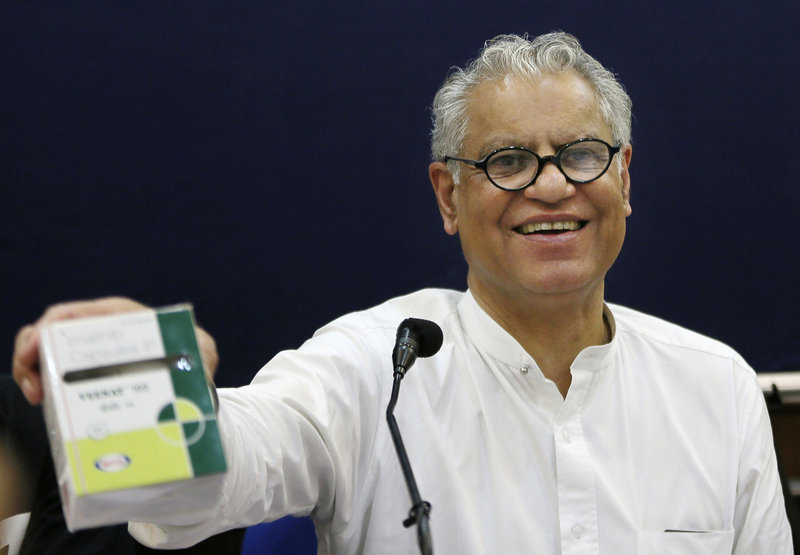NEW DELHI — India’s Supreme Court on Monday rejected drug maker Novartis AG’s attempt to patent an updated version of a cancer drug in a landmark decision that health activists say ensures poor patients around the world will get continued access to cheap versions of lifesaving medicines.
Novartis had argued that it needed a patent to protect its investment in the cancer drug Glivec, while activists said the drug did not merit intellectual property protection in India because it was not a new medicine. In response to the ruling, Novartis said it would not invest in drug research in India.
The court’s decision has global significance because India’s $26 billion generic drug industry supplies much of the cheap medicine used in the developing world.
That industry could be stunted if Indian law allowed global drug companies to extend the lifespan of patents by making minor changes to medicines.
Once a drug’s patent expires, generic manufacturers can legally produce it. They are able to make drugs at a fraction of the original manufacturer’s cost because they don’t carry out the expensive research and development.
Pratibha Singh, an attorney for the Indian generic drug manufacturer Cipla, which makes a version of Glivec for less than a tenth of the original drug’s selling price, said the court ruled that a patent could only be given to a new drug, and not to those which are only slightly different from the original.
“Patents will be given only for genuine inventions, and repetitive patents will not be given for minor tweaks to an existing drug,” Singh told reporters outside the court.
Novartis called the ruling a “setback for patients,” and said patent protection is crucial to fostering investment in research to develop new and better drugs.
Ranjit Shahani, the vice chairman and managing director of Novartis India, said the ruling “will hinder medical progress for diseases without effective treatment options.”
He said the court’s decision made India an even less attractive country for major investments by international pharmaceutical companies.
“Novartis will not invest in drug research in India. Not only Novartis, I don’t think any global company is planning to research in India,” he said.
The Swiss pharmaceutical giant has fought a legal battle in India since 2006 to patent a new version of Glivec, which is mainly used to treat leukemia and is known as Gleevec outside India and Europe. The earlier version of Glivec did not have an Indian patent because its development far predated the country’s 2005 patent law.
India’s patent office rejected the company’s patent application, arguing the drug was not a new medicine but an amended version of its earlier product.
Anand Grover, an attorney for the Cancer Patients Aid Association, which led the legal fight against Novartis, said the ruling Monday prevented the watering down of India’s patent laws.
“This is a very good day for cancer patients. It’s the news we have been waiting for for seven long years,” he said.
Send questions/comments to the editors.



Success. Please wait for the page to reload. If the page does not reload within 5 seconds, please refresh the page.
Enter your email and password to access comments.
Hi, to comment on stories you must . This profile is in addition to your subscription and website login.
Already have a commenting profile? .
Invalid username/password.
Please check your email to confirm and complete your registration.
Only subscribers are eligible to post comments. Please subscribe or login first for digital access. Here’s why.
Use the form below to reset your password. When you've submitted your account email, we will send an email with a reset code.